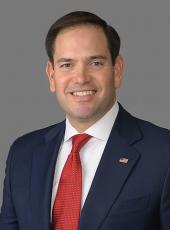
Ever since then—secretary of state Hillary Clinton announced a "reset" of relations with Russia in 2009, the consequences of six years of failed U.S. policy toward Russia have played out in the annexation of Crimea and the battlefields of eastern Ukraine. This policy has also helped prolong the humanitarian and strategic nightmare that Syria has become.
Somehow, as the evidence of failure grows, President Obama still can't seem to understand Vladimir Putin's goals. Putin wants nothing less than the recognition of Russia as a geopolitical force. He has already achieved this in Europe, and he is now pursuing the same goal in the Middle East, exploiting the vacuum left by President Obama's "leading from behind" approach.
Since the outbreak of the revolt in 2011 against Russian ally Bashar al-Assad, President Obama and his aides have tried to involve Putin in a negotiated solution. Rounds of negotiations in Geneva produced a theoretical framework for a "transition" process in Syria that did not require Assad to step down. Time and again, Russia has defended Assad at the United Nations and prevented meaningful actions to hasten the end of the conflict.
Related Images
Marco Rubio, Rubio Campaign Press Release - Here's How to Counter Russia in the Middle East Online by Gerhard Peters and John T. Woolley, The American Presidency Project https://www.presidency.ucsb.edu/node/313286

